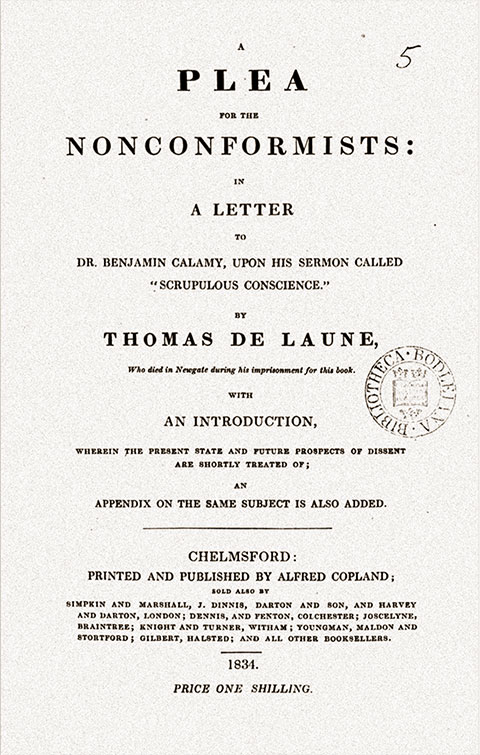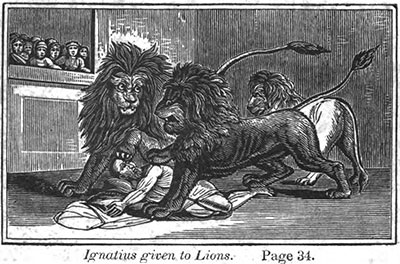Our latest story tells of Judah’s wicked king, Manasseh, who repented in captivity and found restoration from the Lord.
Hostage captivated by Christianity
As a teenager, the British accepted Prince Owusu-Ansa of the Asante tribe of the Gold Coast (Ghana), as a “hostage.” The British intended to prepare the young man to act as a peacemaker between Britain and his own people. Educated in Cape Coast and later in Great Britain (with permission of the Asantehene—i.e., king of Asante) he became a Christian. Upon his return to the Gold Coast, he worked with Wesleyan Methodist missionaries to evangelize his people. Owusu-Ansa successfully spread Christianity for many years before leaving the ministry to become a councillor to and educator of his people. Most of the captives we mention went to prison for their faith. By contrast, Owusu-Ansa gained his faith during captivity.
Thomas Marsh, Independent
In January 1746 authorities locked up Thomas Marsh because members of a church in Canterbury, Connecticut, were about to ordain him as their pastor. Marsh was not an ordained minister within the colony’s established church. A sizable group in Canterbury were unhappy with the establishment “soul-guide” available to them and wanted someone who would preach truth as their consciences said it should be preached.
Continue reading “Thomas Marsh, Independent”John Howard reformed Europe’s prisons

On his way from England to Portugal to survey the damage done by the great Lisbon earthquake, John Howard was captured by a French privateer. He was cruelly treated. He wrote, “Before we reached Brest I suffered the extremity of thirst, not having for above forty hours one drop of water, nor scarcely a morsel of food. In the castle at Brest I lay six nights upon straw, and observed how cruelly my countrymen were used there and at Morlaix, whither I was carried next; during two months I was at Carhaix upon parole, I corresponded with the English prisoners at Brest, Morlaix, and Dinnan: at the last of these towns were several of our ship’s crew, and my servant. I had sufficient evidence of their being treated with such barbarity that many hundreds had perished, and that thirty-six were buried in a hole at Dinnan in one day.” Continue reading “John Howard reformed Europe’s prisons”
De Laune starved in prison

The very thing De Laune feared came upon him. Challenged to respond to England’s persecution of those who dissented from the state religion, he did so but noted that such responses were usually met with violence. You can read his story in the Post-Reformation section under De Laune Done to Death.
A new entry from the Reformation era
Our latest story is about John Frederick I, Elector of Saxony, who suffered for his faith during the Reformation era.
Edmond Richer’s Costly Church Politics
Edmund Richer was a doctor of the Sorbonne, Grand Master of the College of Cardinal Le Moine, and trustee of the University of Paris. He became a prisoner and lost his positions after he dared to publish in 1611 Libellus de Ecclesiastica et Politica Potestate (The Book of Ecclesiastical and Political Power ). The bulk of the work was not even his, as it consisted mostly of quotes from theologian Jean Charlier de Gerson (1363–1429) who had been a powerful player at the Council of Constance that deposed Pope John XXII (now labelled an anti-pope).
Continue reading “Edmond Richer’s Costly Church Politics”Caspar Peucer, vulnerable theologian

[Kaspar Peucer—public domain, wikimedia File:Kaspar_Peucer.jpg]
Caspar Peucer spent twelve years in prison (1574 – 1586) over his interpretation of the Lord’s Supper. Strict Lutherans believed in the real presence of Christ in the Eucharist. “The body and blood of Christ are truly present, and are communicated to those that eat in the Lord’s Supper.” After Luther’s death Philipp Melanchthon and his followers (Philippists) promoted a view more in line with that of the Swiss Reformation, “with bread and wine are truly exhibited the body and blood of Christ to those that eat in the Lord’s Supper.” Continue reading “Caspar Peucer, vulnerable theologian”
The history and causes of persecution

Why are Christians persecuted? What is God’s purpose for it? Why do people do it? How are believers to meet it? Roy Stults has compiled the church’s reactions and responses to persecution from its earliest centuries. Chapter eight offers deeply perceptive insights into persecution from theologians of the last sixty years. Download your free copy of the entire book in PDF format now.
Mom in prison for sons
Firmin Abauzit was born into a Huguenot family in France in 1679. After King Louis XIV revoked the Edict of Nantes in 1685, depriving Huguenots of civil liberties and the right to worship as Protestants, Firmin’s mom helped the ten-year-old escape from France. For two years he and a brother hid out before making their way to Geneva. Firmin went on to become an internationally-known scholar and scientist (unfortunately, family with different religious views destroyed most of his works after his death). His mom, however, went to prison for her role in helping her sons leave France where authorities had attempted to force a Catholic education on them. She eventually escaped herself and joined her sons.
